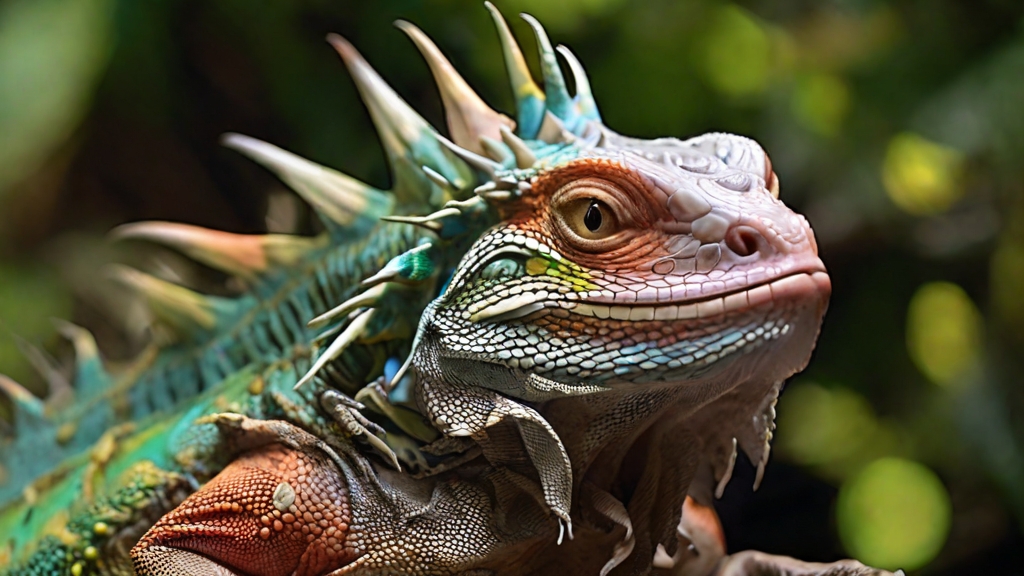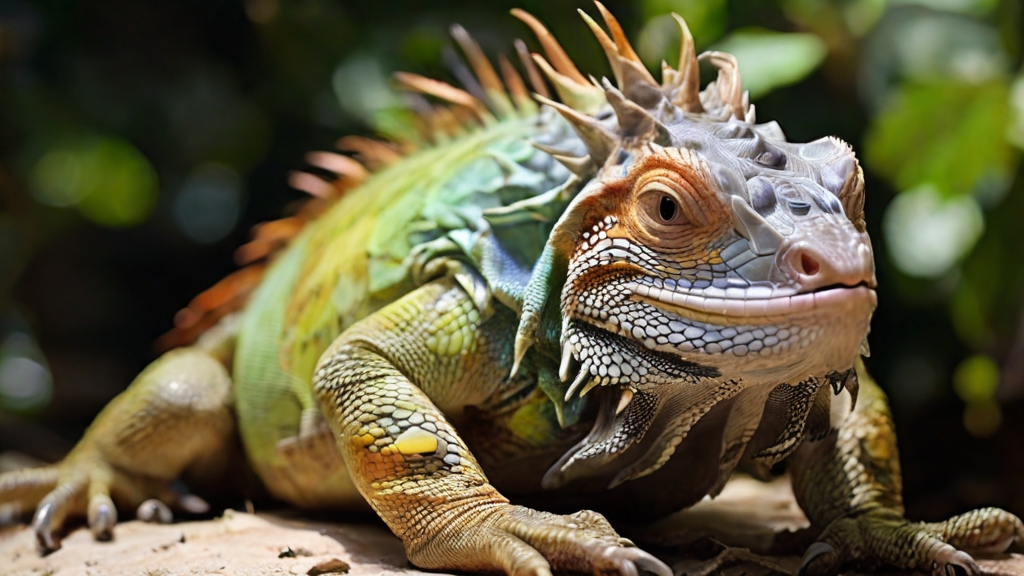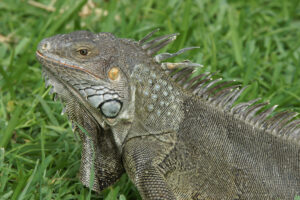Iguanas are fascinating creatures that have captured the attention of many reptile enthusiasts. However, before deciding to bring one into your home, it’s essential to understand the nature and requirements of these creatures. In this informative guide, we’ll explore the pros and cons of owning an iguana, housing requirements, feeding habits, and health concerns.
Introduction
Iguanas are ancient lizards that have been around for millions of years. These reptiles are native to the Americas and are known for their distinctive appearance, including their long tails, spiny crests, and dewlaps. Iguanas are also known for their gentle nature and can make great house pets when cared for properly.
Understanding the Nature of Iguanas
Iguanas are cold-blooded reptiles that require specific environmental conditions to survive. They are herbivorous animals that mainly feed on fruits and vegetables, and they can grow up to six feet in length. Iguanas are also known for their unique behavior, such as basking in the sun, climbing trees, and swimming in water.
Pros and Cons of Owning an Iguana
Before adopting an iguana, it’s important to weigh the pros and cons of owning one. While iguanas can make great pets, they also require a lot of attention and care.
Pros of Owning an Iguana
One of the main benefits of owning an iguana is their gentle nature. Iguanas are calm and docile creatures that can be quite affectionate when cared for correctly. They are also fascinating to watch and can provide a unique and exciting addition to your household.
Cons of Owning an Iguana
One major downside of owning an iguana is the amount of space and attention they require. Iguanas need large enclosures with specific temperature and lighting conditions, and they also require a regular feeding schedule. Additionally, iguanas have a long lifespan, which means that owning one is a long-term commitment.
Housing Requirements for Iguanas
Providing the appropriate housing for an iguana is one of the most critical aspects of caring for these creatures. Iguanas need large enclosures that mimic their natural environment and provide adequate space for basking, climbing, and hiding.
Types of Iguana Enclosures
Iguanas require large enclosures that provide plenty of space for them to move around. The enclosure should be at least double the length of the iguana and should include branches, basking spots, and hiding areas. You can purchase commercially available enclosures or build one yourself using materials like wood, wire mesh, and plastic.
Temperature and Lighting Needs
Iguanas require specific temperature and lighting conditions to thrive. The ideal temperature range for an iguana enclosure is between 80-90 degrees Fahrenheit, with a basking spot that reaches 95-105 degrees. Iguanas also need UVB lighting, which helps them synthesize vitamin D3 and aids in calcium metabolism.
Humidity and Hydration
Iguanas require humid environments, which can be achieved through regular misting or by providing a water feature. They also need access to clean, fresh water at all times, which can be provided through a shallow dish or drip system.
Feeding Your Iguana
Iguanas are herbivorous animals that require a specific diet to stay healthy. A proper iguana diet consists of a variety of fresh fruits and vegetables.
Types of Iguana Diets
An iguana’s diet should consist of 80% vegetables and 20% fruits. Some good vegetables to include in their diet include collard greens, mustard greens, kale, and squash. Fruits that are safe for iguanas to eat include strawberries, grapes, and apples.
Proper Feeding Schedule
Iguanas should be fed once a day, with their food being available for 12-14 hours. It’s essential to remove any uneaten food to prevent spoilage and dehydration.
Health Concerns for Iguanas
While iguanas are generally healthy animals, they are prone to specific health issues that owners should be aware of.
Common Health Issues
Some common health issues that iguanas can experience include metabolic bone disease, respiratory infections, and parasitic infections.
Preventative Measures and Treatment Options
Preventative measures for iguanas include providing adequate housing, a proper diet, and regular veterinary check-ups. Treatment options for common health issues may include medications, dietary changes, or surgery.
Conclusion
In conclusion, owning an iguana can be a rewarding experience for those willing to provide the necessary care and attention. Understanding their nature, housing requirements, feeding habits, and health concerns can help ensure a happy and healthy life for your iguana. As with any pet, it’s important to do thorough research and consult with a veterinarian before making a commitment to become an iguana owner.




